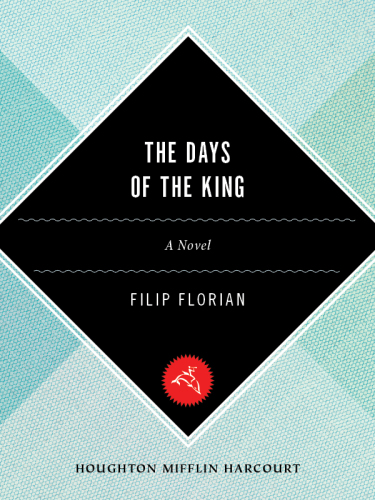
The Days of the King
کتاب های مرتبط
- اطلاعات
- نقد و بررسی
- دیدگاه کاربران
نقد و بررسی

May 16, 2011
Blyth spins out Florian's second novel (after Little Fingers) in sinuous prose, and its elaborations, turns, and sheer sentence length render well the political and social machinations of 1866 Bucharest, whose multiethnic population convulses in forging a modern stateâand Prince Karl of Hohenzollern has recruited Berliner dentist Joseph Strauss to attend to him (and his decayed molar) on his ascent to the throne of Romania. Joseph begins life anew there, hiding much of his past from his wife, Elena, and keeping secrets about Prince Karl that only the dentist and his loyal cat, Siegfried, know. Though readers come to know this strange time and place, there are pages of summary that prevent a full involvement with some of Joseph and Prince Karl's most vital experiencesâor even their dialogue. Perhaps it's testament to the story's sharp humor and crisp voiceâeven those amorous passages narrated by the catâthat the reader lingers in each scene, sharing them with the characters moment-by-moment.

August 1, 2011
A dentist and a prince—along with a remarkably articulate cat—navigate the complex politics of late-19th-century Romania.
It says something about the complexity of central European statecraft that the latest novel by Florian (Little Fingers, 2009, etc.) has a 10-page appendix explaining the Austro-Prussian War, the decline of the Ottoman Empire and other historical details relevant to the book's setting. But though Bucharest endured plenty of turmoil between 1866 and 1881, this book concentrates on more intimate concerns. Central to the story are Karl, a Prussian lieutenant who's been granted the throne of Romania, and his dentist, Joseph, a free spirit who quickly settles into an ad hoc German community in the new city. Florian writes in a fablelike style, and many of his observations deal with the unstable melting pot of the new world Karl and Joseph enter: Early on the dentist is bemused that he's on "an Austro-Hungarian vessel, with a Czech captain, between the Romanian and Bulgarian banks of the Danube, both buffeted by winds from Istanbul." So unlikely connections become a running theme in the novel, as Joseph falls for and later marries a nanny and Karl consorts with a blind prostitute. Florian's style can be demanding: He writes dense, lengthy paragraphs that sometimes shift in and out of dream states, and dialogue is practically absent. Indeed, the closest the book gets to being conversational are the messages Joseph's cat leaves on the furniture—they're just scratches to mere mortals, but they turn out to be high-styled epistles praising human kindness. Such moments lighten the mood considerably, and would have been more welcome in the closing pages; as Bucharest destabilizes, the story becomes ploddingly descriptive about legislative and diplomatic parrying.
A genial tale about fate and romance that sometimes gets overly tangled in political history.
(COPYRIGHT (2011) KIRKUS REVIEWS/NIELSEN BUSINESS MEDIA, INC. ALL RIGHTS RESERVED.)

July 1, 2011
Readers on the lookout for unique European literary voices and historical fiction fans looking for a challenge may be charmed by this poetic yet chaotic novel by Romanian author Florian (Little Fingers, 2009) or, perhaps, frustrated. Or a little of both. Rooted in historical events, the plot is relatively straightforward. Bachelor dentist Joseph Strauss relocates from Berlin to Bucharest in 1866 to serve Prince Carol I, a Prussian military officer who has ascended to the local throne. He marries and starts a family, but there are secrets which must be keptmost significantly, the prince's dalliances with a blind prostituteand Strauss' life of chiseling teeth soon unravels amid war and political tumult. Potentially frustrating challenge is posed by Florian's languid, digressive style, which revels in the sensual details of Bucharest street life, food, sex, and dentistry but flummoxes efforts to understand the characters and their motivations. Yet the novel has its delights, chief among them a wise and whimsical cat who helps readers by scratching eloquent missives into the backs of upholstered chairs.(Reprinted with permission of Booklist, copyright 2011, American Library Association.)

























دیدگاه کاربران